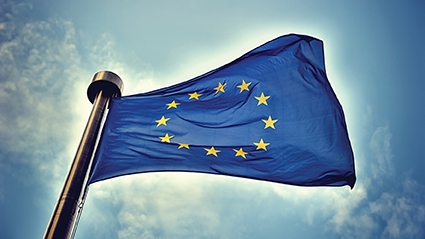The Return of the EU
The European Union (EU) already has a long history of partnership and semi-presence in the South Caucasus region. Despite successes such as the signing of the Association Agreement (AA), the EU has also seen a number of notable setbacks. For instance, in late 2013, Armenia and Azerbaijan pulled out of the Eastern Partnership program and saw Armenia choosing the Russia-led Eurasian Economic Union instead. Now history is repeating itself as Brussels is close to completing what was abandoned four years ago –partnership agreements with Yerevan and Baku.
Azerbaijan plans to have a new agreement with the EU primarily focused on security, trade and investment. What the agreement lacks in comparison with the 2013 one is commitments on political reforms from the Azerbaijani side. While the official negotiations on the new deal were only launched in February 2017, when Azerbaijani President Ilham Aliyev visited Brussels, many believe that the agreement could come to a conclusion by the end of this year.
Baku has been oft criticized by the West for its poor human rights record and largely because of that, Azerbaijan’s relations with Brussels have been difficult in recent years. Another reason was Baku’s abandonment of the EU AA talks. This deal would have been a far more extensive one than the agreement currently being negotiated.
However, although Europe remained largely critical of Baku following the abandonment of the Agreement, from the EU perspective, geopolitics plays an important role and this is when Azerbaijan’s geographic position comes to the forefront.
Located on the Caspian Sea and being a hub for energy resources of local and potentially Central Asian provenance, Baku being on your side brings many political and economic advantages. Indeed, as perhaps the most vital player on the Southern Energy Corridor, Azerbaijan’s energy resources are important for Europe in terms of the ongoing discourse on Europe’s over-dependence on Russian gas, and though Azerbaijani gas will not be enough to diversify, it is nevertheless important for the EU not to let Russia spread its influence to Baku if EU-Azerbaijan relations soar further. Thus, if the work on the new agreement goes unhindered, major topics in the deal would be political and security cooperation, trade and investment.
Azerbaijan’s neighbor Armenia is also in the process of completing negotiations with the EU, and is expected to sign a Comprehensive and Enhanced Partnership Agreement at the Eastern Neighborhood Summit to be held in Brussels this November.
For the EU, Armenia is less strategically important, but leaving out Yerevan would further increase the latter’s already large dependence on Moscow. Here, too, the upcoming treaty will be different from the one proposed in 2013 as it commits Yerevan to a range of reforms in the political and economic sectors. Considering that to date Moscow has not voiced any concerns regarding the negotiations (as it did in 2013), it is difficult for the moment to imagine that Russia will try to scuttle the signing. But there are deeper reasons for Moscow’s position as apparently the new agreement does not offer Armenia any security ties to Europe.
Apart from Russia, Iran, too, should be very interested in the developments to its north. If signing goes unhindered, Iran will have its entire northern border if not integrated to Europe, then at least related in some spheres. As the EU tries to increase its footprint in the South Caucasus, for Teheran the question will be how to perceive this development because Iran’s traditional competitors in the region have been Russia, and partially Turkey. Turkey will also be watching carefully. Both Ankara and Teheran understand that the agreements between Armenia, Azerbaijan and the EU will be short of something substantial, but it is nevertheless a development to reckon with.
The EU has made a comeback four years since Armenia and Azerbaijan refused to sign Association Agreements. The new agreements are well watered-down in terms of the commitments both Yerevan and Baku will have to make and are unlikely to see resistance from Russia. Another interesting aspect will be Turkey and Iran’s positions, as both are interested in increasing their influence in the South Caucasus.
Emil Avdaliani












